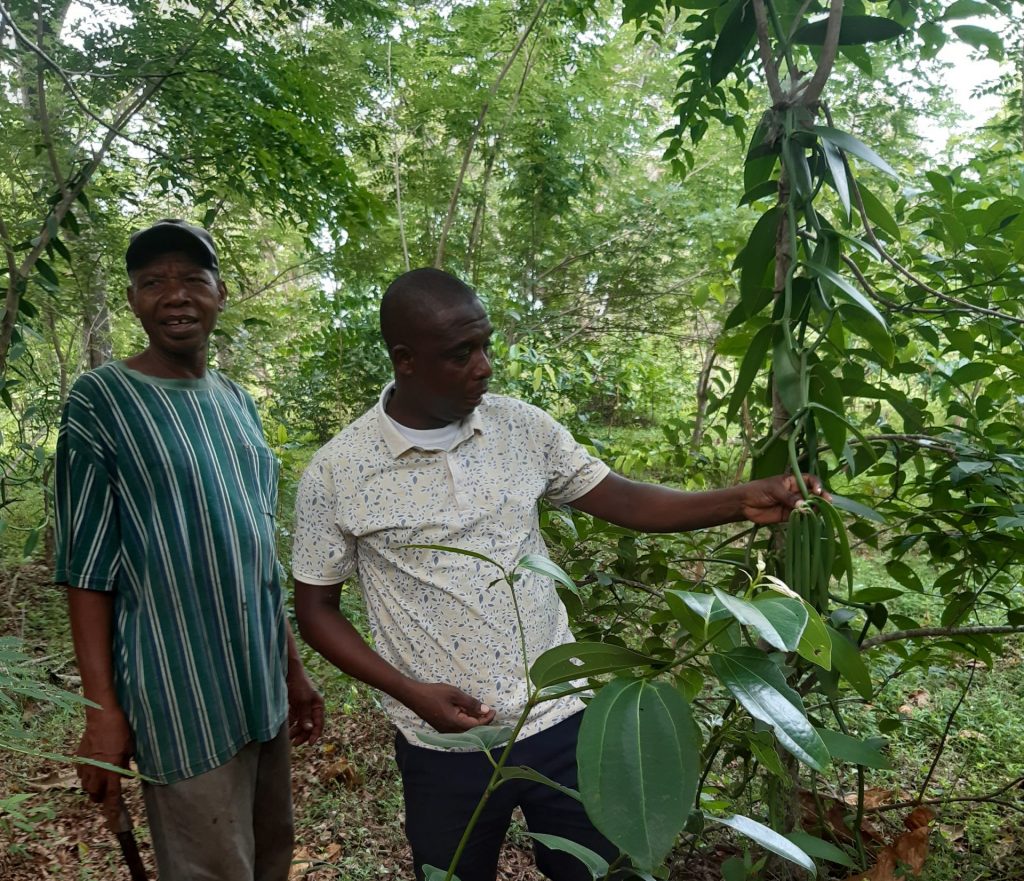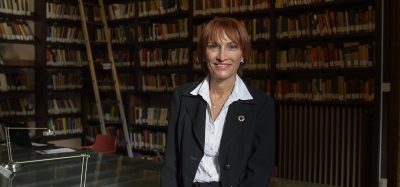New research by economist Alina Husung, a PhD student in Business Administration and lecturer at Linnaeus University in Växjö, Sweden, is challenging conventional approaches to sustainable development in the southern hemisphere. She talks to Future about the radical rethink required to tackle climate change and poverty in developing nations
In her dissertation, Alina Husung investigated the twin perils of climate change and poverty, most notably in Sub-Saharan Africa, where the consequences of the former, especially environmental degradation, are intertwined with the lack of economic and social development. Part of the research involved scrutinizing how social entrepreneurs aim to affect socioecological regenerative change, but also how the current approach to sustainable development needs to undergo a transformation.
“Basically, we need to reinvent everything we do if we are to secure a more sustainable future,” says Husung. “I believe that we need a radical social change of guard to address unsustainable lifestyles because we are really running out of time.
“I’m fascinated by the speed and grandeur of many changes that are already taking place, where many people in the global south are making innovative changes to the way they live. And I’m driven by a sort of frustration at the unfairness of the fact that these countries have the lowest greenhouse gas emissions, but they’re the countries that are the most at risk from the adverse effects of climate change.
“How can we deal with these injustices and the adverse effects of climate change? I really struggle with that, and it’s the reason why I’m so passionate about the topic of the ‘north-south’ conflict.”
The conflict, Husung says, is the socioeconomic and political divide between the industrial countries of the northern hemisphere and the developing countries in the south. The former is assumed to be the ones with all the solutions (in the form of development aid) while the latter are the ones “lumbered with all the problems”. But, says Husung: “My dissertation illustrates how individuals in the global north can learn from individuals who are already adapting to the consequences of climate change. They can do this by experimenting and trying out new forms of livelihood possibilities. Thus, we can see that adaptation strategies for handling climate change can be developed directly by the people who need them most.”
A grassroots approach
Part of the radical strategic change Husung proposes in her research is for decision-makers and financiers in the global south, who are involved in funding social entrepreneurship, climate adaptation and poverty reduction, to redefine their roles. Entrepreneurship is, she acknowledges, an important part of the transition towards a more sustainable world. “Entrepreneurship is related to change and newness, which may entail the creation of something novel, doing things differently in a new way. And also taking risks,” says Husung. “Sustainable entrepreneurship can be used to organize the economy in a way that repairs damage caused by humans to the ecosystem by striving towards social and environmental regeneration.”
She suggests making regulations that control relations between the global south and global north more equal, and to ensure such regulations are co-decided. “We tend towards this view that people in the global north have all the answers to global challenges, including climate change. But individuals in the global south are the ones who are most impacted by the degradation of natural resources.
“I think it’s very important that you have the global south or other community members who can offer valuable insights to the global north, like innovating, experimenting, and creating new forms of living, rather than providing fixed solutions. We need to keep that in mind and have sustainable development strategies that include knowledge that is sourced at the grassroots level, and that includes marginalized perspectives. This shift is necessary because traditional or global-north-centric sustainable development solutions have been shown to be disempowering for the majority of people on this planet.”
This era of cooperation includes funding for development projects. Husung says people in the global south must be able to decide what to do with the project money themselves. “It’s ethically necessary to involve the global south in the decision-making process,” she says.
“Dominant actors in south-north collaborations need to be aware of and really embrace a plurality of voices and the marginalized perspectives that exist in the south, because we need to develop a more diverse and holistic vision regarding how an inclusive and sustainable regenerative future can be achieved.”
“For many people in the global south, climate change is not a problem for the future: it’s a lived reality. It’s the consequence of climate change effects that threaten their everyday lives and put their survival at risk. They depend on the ecosystems that they make a living from, so they are at the forefront of climate change, and they’re already experiencing the changes every day, and they are responding to them in one way or another. And so, the global south can offer valuable lessons to people in the global north,” says Husung.
“It’s crucial that we embrace different views of development than those based on the neoliberal ideology, and to revise forms of development that can work within the planetary limits. That allows for a more biocentric view of the world.”
Empowering local communities for small wins
One of the projects Husung studied as part of her dissertation was a spice plantation on the Tanzanian island of Pemba, located about 50 kilometers from the mainland. Pemba has some of the most fertile soil in the world and is responsible for the majority of spices exported from Tanzania, including cloves, black pepper, vanilla, cinnamon and nutmeg. Husung investigated Community Forests Pemba (CFP), part of the wide-ranging EU-funded Global Climate Change Alliance Plus, and how it was working to improve sustainability in forest agriculture at a grassroots level, while also empowering communities.
The project looked into the growing land use challenges on the island, rejecting the global north’s traditional solution of clearing forests to open up land for monoculture farming in favour of polyculture, helping farmers to diversify their offering. “Monoculture farming actually leads to poor subsites,” says Husung. “And the removal of indigenous vegetation negatively impacts the fertility of the entire ecosystem.”
“Dominant actors in south-north collaborations need to be aware of and really embrace a plurality of voices and the marginalized perspectives that exist in the south, because we need to develop a more diverse and holistic vision regarding how an inclusive and sustainable regenerative future can be achieved”
Alina Husung

“In the Kilimanjaro region, there’s a land use tradition known as the ‘tiger home gardens’ which combines agriculture, forestry and animal farming practices. The intention behind the spice project and Pemba Island was to promote similarly successful land use techniques and adapt them to the island’s unique cultural and environmental conditions. And this is done in the form of polyculture systems, with a variety of trees, crops and spices planted together to grow diverse food systems. As part of the project, the CFP team has assisted farmers on Pemba to move from the monoculture lamentation type of land use, which is very vulnerable to rain patterns and rising temperatures.”
“Most of the farmers are smallholders – they don’t own large pieces of land. The project also enables them to practise intensive polyculture on their small properties. That really combines natural forest restoration with climate-smart space farming, and it provides an income for the communities.”
From acorns grow mighty oaks
The communities then benefit as a whole because the income can be used for school and medical fees, and remain within the community, creating economic resilience and empowering its people. These are some of the ‘small wins’ Husung describes in her research.
“It’s generally assumed that the big effects require big causes,” she says. “But this assumption overlooks how it is essential to identify, collate and label any small changes that are present that go unnoticed. Striving for so-called small wins and engaging in small changes can put forces into motion that will then support and lead to other small wins.”
“Just to provide an example: in Penang Island, Lake Ontario, community members use their social networks, including community ties and accumulated knowledge to provide training sessions and farmland for schools and their communities. During these sessions, community members collectively share their knowledge and forms of doing things. This is the same thing that made the spice project on Pemba grow, despite the ending of project funding. That shows how important these small wins are.”







